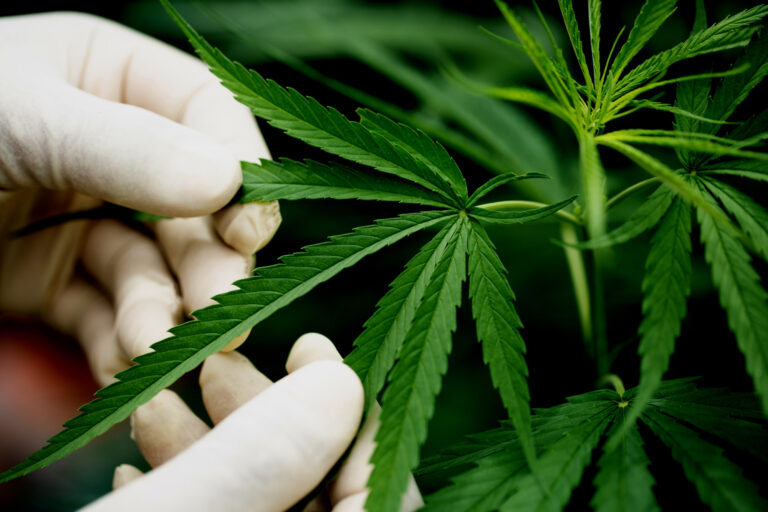Understanding The Use Of Cannabis Plants For Medical Purposes
by Haley Mills · May 30, 2024
Unlock the Power of Cannabis Plants for Medical Use – Explore the Revolutionary Healing Potential Today! Click to Discover More.

Do you ever wonder about the potential benefits of cannabis plants for medical purposes? Are you curious about the history, chemical components, and various administration methods?
In this article, we will look into the fascinating world of cannabis and its potential for treating a wide range of medical conditions. So sit back, relax, and let’s explore the possibilities together.
Throughout history, cannabis has been used for various purposes, including medicinal ones. From ancient civilizations to modern times, people have recognized the potential healing properties of this plant.
In recent years, there has been a growing interest in understanding how cannabis can be used to alleviate symptoms and provide relief for different medical conditions.
By understanding the chemical components of cannabis, we can gain insight into its potential benefits. The plant contains numerous cannabinoids, such as THC and CBD, which interact with our body’s endocannabinoid system. This system is crucial in maintaining balance and harmony within our bodies. Through utilizing the medicinal properties of cannabis, we can potentially tap into this natural system and promote overall well-being.
So, whether you’re seeking alternative treatments, curious about the science behind it, or simply looking to expand your knowledge, this article will provide you with a comprehensive understanding of the use of cannabis plants for medical purposes.
Get ready to embark on a journey of exploration as we dive into the history, chemical components, medical conditions treated, different methods of administration, and potential risks and side effects.
Key Takeaways
- Cannabis has a long history of medicinal use and contains over 100 different cannabinoids.
- THC is responsible for the psychoactive effects of cannabis, while CBD has potential therapeutic effects without the psychoactive properties.
- Cannabis can be used to treat chronic pain, anxiety, depression, and epilepsy.
- Different methods of administering cannabis include smoking, vaping, edibles, topicals, and tinctures, but it is essential to consult with a healthcare professional before using cannabis for medicinal purposes.
The History of Cannabis in Medicine
You may already be aware of the various uses of cannabis, but did you know that its history in medicine dates back thousands of years? That’s right, humans have been utilizing the healing properties of this plant for centuries.
Ancient civilizations from Egypt to China recognized the therapeutic benefits of cannabis and incorporated it into their medical practices. In ancient Egypt, cannabis was used to treat a variety of ailments, including inflammation, pain, and even infections. The Egyptians believed in the power of the plant to bring balance to the body and restore health. They used it in different forms, such as oils, ointments, and even as an ingredient in their recipes.
The Chinese also embraced the medical potential of cannabis. They used it as an analgesic and anesthetic during surgeries, and its use was documented in their medicinal texts dating back to the first century. Throughout history, cannabis has been valued for its ability to provide relief and promote well-being. Its use in medicine has spanned cultures and continents, proving its effectiveness repeatedly.
The Chemical Components of Cannabis
Exploring the chemical makeup of cannabis reveals a fascinating world of compounds that contribute to its therapeutic potential. The cannabis plant contains over 100 different chemical compounds known as cannabinoids, each with its unique effects on the body.
The most well-known cannabinoid is delta-9-tetrahydrocannabinol (THC), which is responsible for the psychoactive effects of cannabis. THC binds to receptors in the brain and central nervous system, producing a sense of euphoria and relaxation.
However, there are many other cannabinoids in cannabis that offer a range of medical benefits, such as cannabidiol (CBD). CBD is a non-psychoactive compound that has gained significant attention for its potential therapeutic effects. It has been found to have anti-inflammatory, analgesic, and anti-anxiety properties, making it a promising treatment for conditions such as chronic pain, epilepsy, and anxiety disorders.
CBD works by interacting with the body’s endocannabinoid system, which regulates various physiological processes, including pain, mood, and immune function. By modulating the endocannabinoid system’s activity, CBD can help restore balance and promote overall well-being.
Understanding the chemical components of cannabis is essential for harnessing its full potential as a medicine. By studying the different cannabinoids and their effects on the body, researchers can develop targeted therapies that address specific medical conditions.
This newfound knowledge opens up a world of possibilities for medical cannabis, offering hope and freedom to those seeking alternative treatments for their ailments. So, embrace the exploration of cannabis chemistry and discover the healing power of this remarkable plant.
Medical Conditions Treated with Cannabis
Discover how cannabis can be utilized to treat a variety of medical conditions. Cannabis has been found to have numerous therapeutic benefits that can provide relief for individuals suffering from various ailments.
By incorporating cannabis into your treatment plan, you can potentially experience a newfound sense of freedom from the constraints of your condition.
- Cannabis has been shown to effectively alleviate chronic pain, providing individuals with the opportunity to regain control over their lives and engage in activities they once enjoyed.
- For those struggling with anxiety and depression, cannabis can offer a sense of relaxation and tranquility, allowing you to break free from the chains of constant worry and sadness.
- Individuals with epilepsy have also found relief through the use of cannabis, with some experiencing a significant reduction in the frequency and severity of their seizures. This newfound freedom from the unpredictability of seizures can significantly improve their quality of life.
By harnessing the power of cannabis, you can potentially break free from the limitations imposed by your medical condition. Embrace the opportunity to explore the potential benefits of cannabis and unlock a world of possibilities for a life filled with freedom and wellness.
Different Methods of Administration
Try different methods of administering cannabis for medical purposes to find the one that works best for you. There are several options available, each with its benefits and drawbacks.
One popular method is smoking or vaping cannabis, which allows for quick absorption into the bloodstream and provides immediate relief. This method is ideal for those who need instant relief from symptoms such as pain or nausea. However, it may not suit everyone, especially those with respiratory issues.
Another method is using cannabis-infused edibles, such as gummies or brownies. These offer a discreet and convenient way to consume cannabis without the need for smoking or vaping. The effects of edibles take longer to kick in, usually within 30 minutes to 2 hours, but they can last much longer than other methods. It’s essential to start with a low dose and wait for the effects to fully kick in before consuming more, as edibles can be potent.
Other administration methods include topical creams or lotions, which are applied directly to the skin for localized relief, and tinctures, which are liquid extracts that can be taken orally or sublingually.
Each method has unique benefits, and it’s worth exploring different options to find the one that suits your needs and preferences. Remember, the goal is to find the method that provides the most effective relief for your medical condition, so don’t be afraid to experiment and find the freedom to choose what works best for you.
Potential Risks and Side Effects
Beware of potential risks and side effects when considering the use of cannabis for medicinal reasons. While cannabis has shown promise in treating various medical conditions, be aware of the potential risks and side effects associated with its use. Here is a table that provides a visual representation of some of the potential risks and side effects:
| Potential Risks | Potential Side Effects | Ways to Minimize Risk |
|---|---|---|
| Dependence and Addiction | Dry mouth | Start with low doses |
| Impaired Cognitive Function | Increased heart rate | Use under medical supervision |
| Respiratory Issues | Memory impairment | Avoid smoking and opt for alternative methods of administration |
| Mental Health Concerns | Anxiety, paranoia | Monitor mental health and seek professional help if needed |
| Interactions with Medications | Dizziness, drowsiness | Inform healthcare provider about all medications being taken |
Frequently Asked Questions
How does cannabis interact with other medications?
How does cannabis interact with other medications? It’s important to consider potential drug interactions before using cannabis. Did you know that cannabis can impact the effectiveness of certain medications or increase their side effects?
Can cannabis be used for the treatment of mental health conditions?
Yes, cannabis can be used for the treatment of mental health conditions. It has shown promise in alleviating symptoms of anxiety, depression, PTSD, and even schizophrenia. However, consult a healthcare professional for personalized advice. Enjoy the freedom of exploring this alternative option!
Are there any age restrictions or guidelines for using cannabis for medical purposes?
There are age restrictions and guidelines for using cannabis for medical purposes. Consult with a healthcare professional to determine whether it is appropriate for your situation.
Is cannabis addictive?
Yes, cannabis can be addictive. While it has potential medical benefits, it’s essential to be aware of its addictive properties. Take control of your freedom by staying informed and making informed decisions about your health.
Can cannabis be used during pregnancy or while breastfeeding?
While cannabis may seem tempting during pregnancy or breastfeeding, it’s like dancing on a tightrope without a safety net. It’s best to steer clear, as the potential risks to your little one are not worth the gamble.
Last Updated: August 8, 2024
Get Approved for Your Medical Marijuana Card in Minutes!

Get Your Medical Card
Connect with a licensed physician online in minutes

Like This Article?
Share with your friends
Table of Contents
Keep Reading
-
Medical Marijuana’s Role in Cancer Treatment
Discover the role of medical marijuana in cancer treatment and how it can be used to manage symptoms and side effects. Learn about the potential benefits of using cannabis for cancer patients.
-
Understanding The Process Of Cannabis Legalization
Uncover the fascinating journey of cannabis legalization and gain a comprehensive understanding of the process. Dive deep into the complexities and learn how this groundbreaking movement took shape. Click now to become an expert on the cannabis legalization process!
-
Explore The Most Popular Medical Marijuana Products
Discover the most popular cannabis products on the market, including CBD oils and edibles. Explore natural and effective options for wellness. Click now to find your perfect choice!



